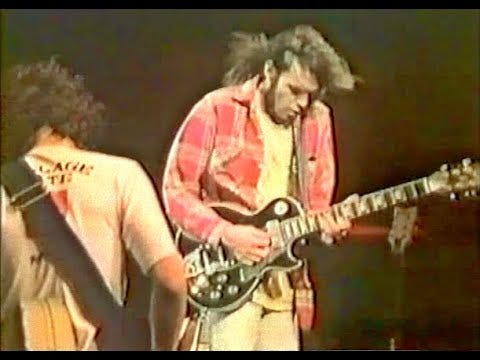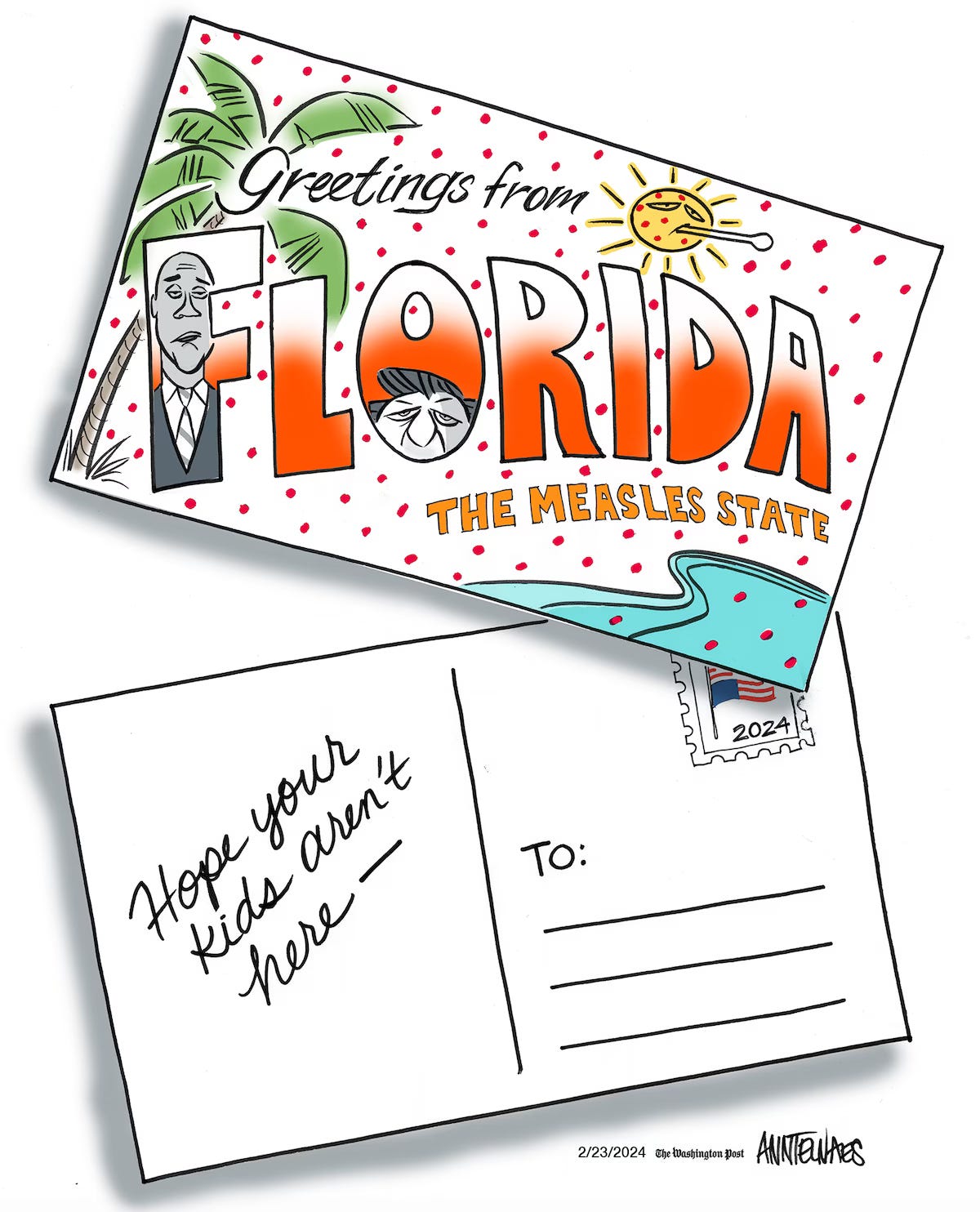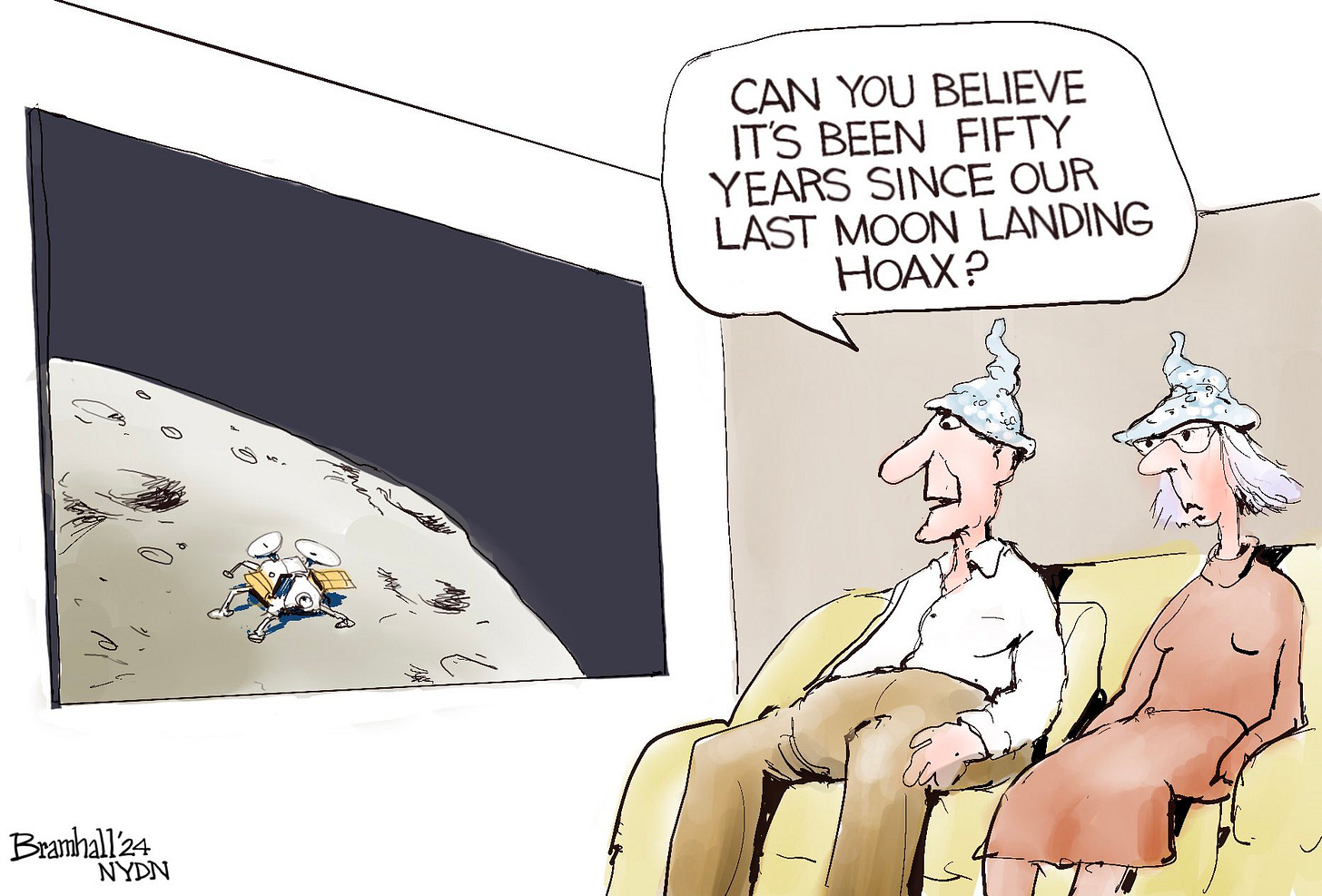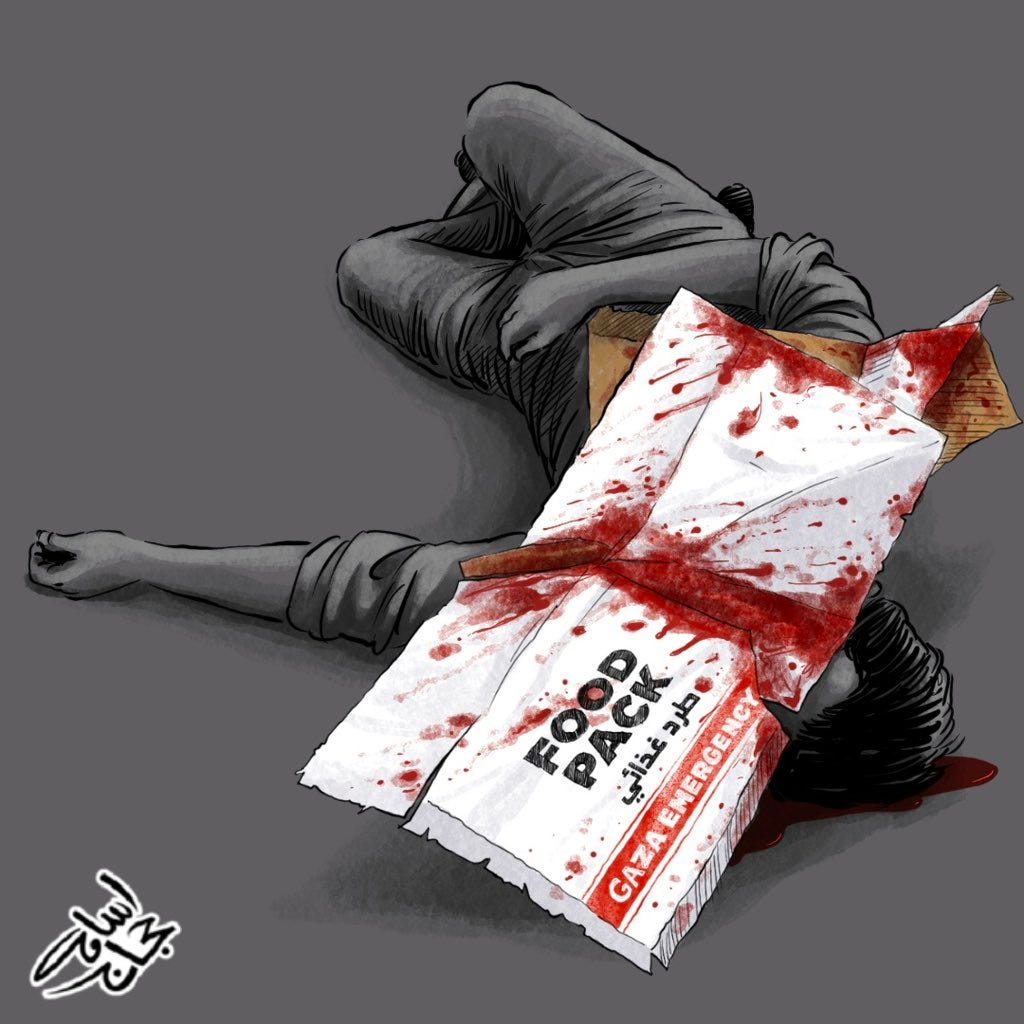Seven Music Masters
Tony Scherman sits down with Neil Young, Ry Cooder, Bonnie Raitt, Merle Haggard, Robbie Robertson, Paul Simon and Paul Griffin.
Greg Mitchell is the author of more than a dozen books (see link) and now writer/director of three award-winning films aired via PBS, including “Atomic Cover-up” and “Memorial Day Massacre” which are still up at PBS.org. Before all that, he was a longtime editor of the legendary Crawdaddy. You can still subscribe to this newsletter for free.
Today I’m happy to offer another “guest column,” this time from a fellow resident of Nyack, N.Y., whose music writing I’ve followed for several decades now. Actually, I wrote a bit about Tony Scherman back in January, related to an upcoming movie about the famed model and photographer Lee Miller (played by Kate Winslet). Tony’s father, David E. Scherman, took the famous photo of his friend Miller in Hitler’s bathtub as the war against Germany ended in 1945.
Over the past decades, Tony has written about rock/pop music for The New York Times Magazine, The Atlantic, Musician, Rolling Stone, and many others. He has penned two award-winning biographies, "Backbeat: Earl Palmer's Story" (2000), and "POP: The Genius of Andy Warhol" (2009).
He also writes a terrific Substack titled “Among the Musical,” which you should definitely check out, and consider subscribing. Below he offers brief excerpts from his interviews with Neil Young, Ry Cooder, Bonnie Raitt, Merle Haggard, Robbie Robertson, Paul Simon and piano man Paul Griffin. Since joining Substack, Tony has also published posts on such artists as Billy Gibbons, John Cale, Albert Murray, Les Paul, and the great blues singer Robert Johnson, with upcoming posts on Raitt, Simon and Robertson. You can also look forward to interviews with, and profiles of, Alison Krauss, Wynton Marsalis, Bobby McFerrin, Chick Corea, Pete Seeger, and the ultimate rock & roll survivor, Al Kooper.
With Crazy Horse, “Like a Hurricane,” 1977.
NEIL YOUNG ON HAVING NO GUITAR TECHNIQUE
After an artistically and economically lackluster, if not disastrous, 1980s and a wrong-headed flirtation with right-wing politics, Neil Young, typically unpredictably, re-emerged energized, upbeat, and full of beans, confounding the many critics who’d tolled his death knell. Two albums, 1989’s Freedom and 1990’s Ragged Glory, demonstrated, amply, that the 45-year-old had fully regained his edge. When we spoke, in an interview for the December 1991 Musician, a third strong one, Harvest Moon, was on the way. Neil was back.
Q. Do you ever think, “Wow, I’ve got to integrate these different sides of myself,” acoustic folk and screaming rock?
A. They don’t go together.
Q. But you’re one person.
A. They get carried around together. But they don’t go together.
Q. What’s your response to people who say your electric playing is primitive?
A. Well, I think they’re right! And I’m proud of it!
Q. In other words, you don’t compare yourself to technique-happy guys; you approach it expressively.
A. Aw yeah—I have no technique! I do have technique, but it’s very gross. There are nuances and fine things about what I do, but they’re done in such a brash way they’re disguised; you don’t really recognize them as anything but noise. I’ll go for things I know are going to be wrong, with a vengeance, like “Eat this!”—one note, flat, and I’ll just grind on it, and slowly bring it up to tune. To me that’s an expression; it’s like a knife going into you and being turned until it reaches the target.
Q. Does it ever feel odd to be the father of three and a middle-aged guy playing howling guitar?
A. Well, when I started playing, I was an adolescent and no one else played it before; we were the first generation who started playing this psychedelic acid-rock kind of thing. And I just never outgrew it. There was never a reason to stop. What example is there to follow? Rock & roll was never there before—why shouldn’t it get old? I mean, everything else gets old, why can’t I get old and keep doing it? I can rock until I fuckin’ drop, who cares? There’s no rule. (More here.)
With Crazy Horse, “Come on Baby, Let’s Go Downtown,” 2023.
RY COODER ON HIS LEFT-WING BACKGROUND
“Songs empower people,” Ry Cooder told me in one of our many interviews over the years. “The civil rights movement certainly needed, and got, music, like an injection. Pete Seeger’s theory is if you sing you become unified. Within minutes. It’s an amazing phenomenon. So we’d better utilize it, because we need to do something to overcome this terrible isolation of people from one another today, and the misunderstanding, and the ignorance. Having said that, I’m not optimistic.”
Q. Did you grow up in a left-wing family?
A. I did, in a funny kind of way. My mother was a Party member. She needed an authoritarian plan and the Communist Party would tell you what to eat for breakfast. She liked that. It didn’t work out for her very well, it wasn’t useful. But there was a point when the FBI were coming around the house a little too often. They wanted her to come in and talk to them and my dad says, “I’m getting a lawyer,” and he did. It was scary. These two guys in the dark blue suits and the Ford and the hats—oh, brother.
Q. You remember it?
A. Shit yes, how could you not?
Ry Cooder, “No Banker Left Behind”
COODER ON HOW “BUENA VISTA SOCIAL CLUB” CHANGED HIS LIFE:
Q. When we spoke in the Eighties, you were not a happy man.
A. Well, life got better. I didn’t like having a solo career at all. It was the wrong fit. And if you’re doing things you know are wrong for you, then you’re liable to be discouraged and disgruntled.
But I found the answer, and it was while making Buena Vista Social Club. Namely, do something for other people and you’ll do something for yourself. Once that was revealed to me, everything got better. I mean it really did.
Q. The standing ovation at the end of the Carnegie Hall show must have been a pretty moving moment for you. You knew what this must have meant to the musicians.
A. Oh yeah, of course. It was, “Okay, we’ve brought this all the way to this point.” Here was this audience that was going mad, and here’s these musicians being given a glimpse of the world. Not that I’m so crazy about the world, but let’s show them that we care about them, provide an experience that’s meaningful for them, that they enjoy, doing something they love to do. It’s a matter of opportunity. This was a great thing to have the opportunity to do. And for once the audience got it. Finally! I’ve been doing this a long time, you know. To see the audience—that being the world—get something for the right reasons, rather than the wrong fucking reasons, is pretty gratifying. It was moving, all right. More here.
Buena Vista at Carnegie Hall
MERLE HAGGARD on the state of country music
When I connected with Merle Haggard in 1996, country music was reaching new commercial heights, and, as far as Merle was concerned, new artistic lows. But the great singer/songwriter/ bandleader’s disdain for the sounds coming out of mid-‘90s Nashville can’t be fobbed off as a crabby old-timer’s sour grapes (Merle hadn’t had a #1 song since 1987, and never would again). Aesthetically, he was spot-on:
“They've got it down to a science. They've got grooming classes where they can turn out Elvis Presleys -- one a day, I think. They gather up at nine-thirty in the morning, they go off in little groups and come back with these prefabricated songs about things that never happened, and it sounds that way. [Merle was an autobiographical writer, his songs drawing on the facts of his life.] It's so refined, it's so perfect, it's so in tune, and there's no feel, no God-dang soul to it, there's no story, there's no melody, and I just wish I could say somethin' else, but that's my opinion.”
Thus Merle Haggard on the Garth Brooks era. One shudders to think what he’d have to say about Morgan Wallen and Luke Combs. Full post here.
THE GREAT, CRUELLY UNSUNG PAUL GRIFFIN
He was the best recording-session pianist of New York’s Brill Building Pop era, on almost every ‘60s hit by the Shirelles, Chuck Jackson, the Isley Brothers, Dionne Warwick. And then there’s Mr. Zimmerman.
In 1965, Griffin played on much of Dylan’s Bringin’ It All Back Home, the first of the three Dylan albums that, within the space of 18 months, turned pop music upside down. On the second, Highway 61 Revisited, that’s Griffin’s ominously rolling left-hand piano figure undergirding the menacing “Ballad of a Thin Man.” Finally, Griffin figures prominently on Dylan’s masterpiece, 1966’s Blonde on Blonde. Especially majestic—one of the all-time great piano tracks in rock & roll—is Griffin’s playing on “One of Us Must Know (Sooner or Later).” Listen to Al Kooper, who played the iconic organ licks on Highway 61’s “Like a Rolling Stone”:
“The best thing I can say about Paul Griffin is take five minutes out of your busy day and find a real nice stereo system and sit back and put on ‘One Of Us Must Know’ from Blonde on Blonde. And just listen to the piano. And tell me if you can find on a rock ‘n’ roll record anybody playing better than that. To me it is the greatest piano achievement in the history of rock ‘n’ roll. Paul just steals that fuckin’ record. It’s the most incredible piano playing I’ve heard in my life.”
Ironic. Griffin played, masterfully, on the three albums which, if any three can be said to have dealt Brill Building Pop its death blow, are the ones. Full piece here.
Dylan, “One of Us Must Know” Plus: Rehearsal tape here with upfront piano. (h/t Lucian Truscott IV)
>FROM POSTS TO COME
HOW BONNIE RAITT GOT THE BLUES
Q. What did you learn from the older, classic blues musicians you spent time with, Junior Wells, Mississippi Fred McDowell, Sippie Wallace, and others?
A. I got a first-hand education in what it was like to be black in Jim Crow America. To tour when you couldn't use the bathroom or stay in a hotel. In Fred McDowell's case, to grow up working on a plantation and playing juke joints on the weekends. In Sippie's case, it was great to get advice about men. And what it was like to be the only woman in a traveling group of guys.
I'd been listening to them on records, but here were the people themselves. I got to hear how they put a set together. I got some guitar tricks from looking at Fred's hands up close, although I'd learned from his records before I met him. I had developed a pretty good blues collection, especially as I got older and could afford to pay $3 for an album. I loved the music so much, I taught myself to play. I was playing slide guitar by the time I was 16. But I had no intention of doing it for a living. I was just a fan. It was a hobby.
Q. Early on, did you have trouble being accepted as a woman slide guitar player?
A: No, if anything, I got my foot in the door and got a record deal because I played slide.
Q. Did anybody ever say, "You play just like a man"?
A. No, because I probably would have slapped them.
[originally from Stereophile, 2022]
ROBBIE ROBERTSON on his Toronto boyhood:
“Even as a little kid I felt different. I’d go with my buddies to see these rock ‘n’ roll shows that came in town, and I’d say, ‘That’s what I’m going to be doing.’ They said, ‘Gimme a break, you’re going to be working at the factory or the gas station just like us.’
“I did fine in school until I became obsessed with music. It just took me over. It wasn’t a situation where my parents could say, ‘Okay, straighten up and do your homework!’ I couldn’t do anything about it, it just had me. I stayed up in my room late at night, listening to WLAC out of Nashville, and I listened to this guy The Hound, this disc jockey from Buffalo. I was studying music, I was studying the first chapters of rock and roll.
“By 14 I was in a band called Little Caesar and the Consoles. But I was only 15 when I hooked up with Ronnie Hawkins. Ronnie has always said, ‘If I hadn’t hired Robbie, he’d be dead or in jail,’ and I guess I was a punk. I was a street kid for sure, he got that right.” [From "Youngblood: A Hawk Flies South," Musician, December 1991.]
Working on a little ditty with Dylan, 1966
PAUL SIMON on poets:
Q . So who are some of your favorite poets?
A. Well, there’s Derek Walcott, whom I’ve been hanging out with a lot. [Walcott and Simon were then starting to collaborate on the unsuccessful Broadway musical The Capeman]. There’s Seamus Heaney. And Wallace Stevens, he’s tremendously musical.
Q. I’ve always had trouble with Wallace Stevens.
A. Oh, he’s the best. The best.
Q. Where should I dip into him?
Get Opus Posthumous, and start with “Adagia. You will definitely have a good time. And you’re gonna love Seamus Heaney. You’re gonna love him. Get Seeing Things. [From “Words and Music by Paul Simon,” Life Magazine, November 1993]







Loved the piece on Paul Griffin and thanks for highlighting his paramount contributions to Dylan's, and many other's, music. "... just listen to the piano. And tell me you can find on a rock ‘n’ roll record anybody playing better than that. To me it is the greatest piano achievement in the history of rock ‘n’ roll. " Wow.
Oh, this was great fun. Thanks!